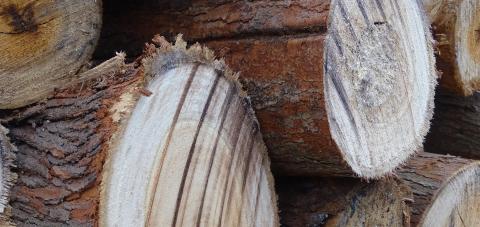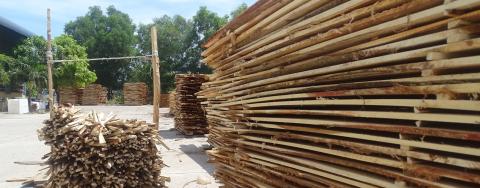NGO performs quality check of FSC quality control
The NGO Nepenthes is organizing a study to reveal how efficiently FSC is ensuring compliance with the certification requirements on the ground.
The focus is on the working methodology of FSC’s main quality control body, Accreditation Services International (ASI), which is in charge of conducting regular quality checks of certification bodies.
We asked Vice President of Nepenthes Jakob Ryding about the background for this study.
Why are you conducting this study?
“We have recently heard from several certification bodies that ASI puts very little focus on “field performance”, such as what is going on in the certified forests, and whether only eligible products actually carry the FSC logo”, explains Vice President of Nepenthes Jakob Ryding. “Based on what we heard, it seems that ASI is auditing the certification bodies’ systems rather than the quality of their auditing. This is deeply worrying to us. We need assurance now that the system is working properly”.
Why do you think that ASI should focus on “field performance”?
“A clear focus on performance on the ground is a core value of the FSC system and one of the main reasons why so many NGOs support it. This is the best assurance that certification makes a difference in real terms. Unfortunately, we know that the performance of certification bodies varies a lot. So ASI plays a vital role in backing up the credibility of FSC, and their approaches ultimately determine the strength or weakness of the FSC system. It is a major flaw if ASI does not have a clear and strong focus on what is going on in the forest and that only the right products are labeled. Our study is going to reveal whether there is any basis for this concern”.
Ryding highlights specific decisions made by the members of FSC at the two last general assemblies held in 2005 and 2008. The FSC members demanded that ASI focus more on field performance of certification bodies and certified companies, and asked for increased transparency allowing interested parties to follow the working methodology of ASI.
“Our study will also look into the transparency issue. How easy is it actually for stakeholders to gain sufficient insight to understand the working methodology of ASI?”, he says.
How are you going to conduct the analysis?
“We will collect ASI reports from the past couple of years covering ASI audits of certification bodies – field and office audits alike. A main part of our study will be to analyze the Corrective Action Requests issued by ASI in these reports, and classify them as ‘system-based’ or ‘performance-based’. The resulting statistics will provide us with a good idea of the main focus of ASI for their surveillance of certification bodies”.
What about the transparency issues?
“Actually the collection itself will be an acid test of the transparency of the system. Are we able to gain access to all ASI surveillance audit reports and collect other information that we’re looking for? Is ASI carrying out any surveillance audits at all related to chain of custody and controlled wood? Currently we don’t know because the information is not made public. But this is crucial, since there are problems in these areas".
"For example, we seriously suspect that only few certification bodies are following up properly on the controlled wood requirements and making sure that controlled wood is fully traceable. This is of course a key area for ASI to look into, but we do not have access to any evidence showing that this actually happens. We are just left with the impression that the problems continue to exist”.
Is the project carried out by Nepenthes alone?
“We are just initiating this project and we do hope to get others on board also. We will be contacting those organizations whom we know to be very engaged in this topic. Other stakeholders who would like to join our initiative one way or the other are also very welcome. People can choose to join our working group directly, to provide support for the study, or to be part of an advisory group set up for the project in order to provide comments and suggestions. We will also contact FSC certification bodies to get their input and thoughts on this issue. Rainforest Alliance and NEPCon have already expressed their support to this initiative and offered to provide requested information”.
When do you expect the study to be finalized?
“It is our aim to have the results ready by New Year. By then we should be able to conclude whether ASI has addressed the demands made by the FSC members in 2005 and 2008, and ensured clear focus on field performance and transparency. If we do find important shortages, then we will raise these issues once again during the next General Assembly in June next year”.
Certification bodies and other stakeholders interested in providing inputs or financial support to the project are welcome to contact Mr. Ryding at jakobryding@gmail.com.
Nepenthes is a Danish NGO focusing on the protection and sustainable management of forests worldwide. The organization is known as a staunch FSC supporter. Nepenthes is a very active FSC member and key proponent of a number of motions passed by FSC members during past FSC General Assemblies. Learn more about Nepenthes at www.nepenthes.dk.



